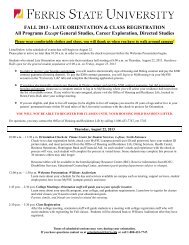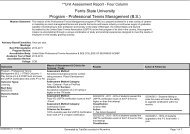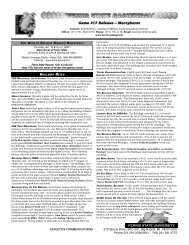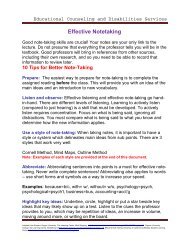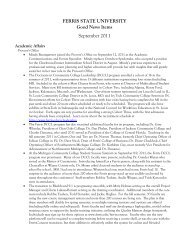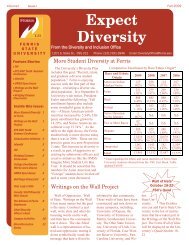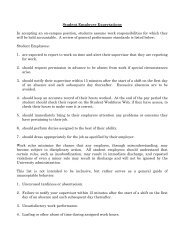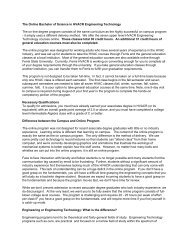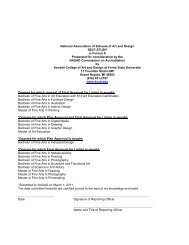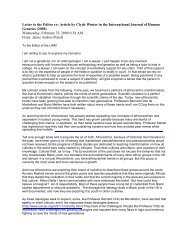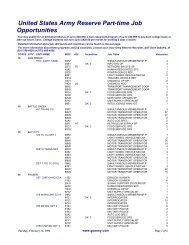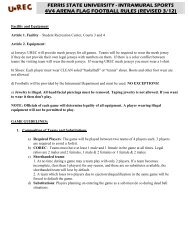Daniel Gasman - Ferris State University
Daniel Gasman - Ferris State University
Daniel Gasman - Ferris State University
Create successful ePaper yourself
Turn your PDF publications into a flip-book with our unique Google optimized e-Paper software.
In the remainder of his article, Bowler focuses largely on the writings of Robert J. Richards and<br />
Sander Gliboff, 5 with some attention also to the ideas of Richard Weikart, a partisan of Intelligent Design.<br />
Bowler confines himself to an examination of the narrower scientific issues raised by their interpretation<br />
of the nature of developmental models of evolution and their understanding of the meaning of Natural<br />
Selection in Darwin and Haeckel. Bowler is sensitive to the theoretical divide between the biology of<br />
Haeckel and Darwin and criticizes Richards and Gliboff for minimizing or even denying the prevalence<br />
of teleology in Haeckel’s science. He is skeptical as well about Richards’ pet theory that Darwin’s ideas<br />
were fundamentally influenced by German romanticism. But he fails to mention that these authors<br />
conceived their books in large measure as polemics against my evaluation of Haeckel and his ties to<br />
National Socialism. This effort is very pronounced in Richards’ biography of Haeckel 6<br />
and Gliboff states<br />
explicitly, in his book on H.G. Bronn and Haeckel, that his intention is to invalidate my analysis of<br />
Haeckel both in terms of his science and his links with National Socialism. Yet Bowler gives no hint<br />
either of this aspect of Richards’ and Gliboff’s work , or of the controversy between Richards and myself<br />
that has escalated exponentially over the past few years relating to the proto-Nazi content of Haeckel’s<br />
thought.<br />
Bowler treats the question as to why these authors are so keen to revise the content of the<br />
developmental model in Haeckel and to bring Darwin and Haeckel’s understanding of Natural Selection<br />
closer together than has been done in the past as a mere technical problem in the history of science. It<br />
does not seem to have occurred to Bowler that this might, in addition have something to do with denying<br />
the idiosyncratic nature of Haeckel’s science as against that of Darwin as a way of breaking Haeckel’s<br />
links with National Socialism – for since Darwin was not a co-founder of National Socialism, and if<br />
Haeckel was the mirror image of Darwin, he also cannot be burdened with such a grievous liability. And<br />
5<br />
Robert J. Richards, The Tragic Sense of Life: Ernst Haeckel and the Struggle over Evolutionary Thought, Chicago:<br />
<strong>University</strong> of Chicago Press, 2008; Sander Gliboff, H.G. Bronn, Ernst Haeckel, and the Origins of German Darwinism,<br />
Cambridge, Mass: MIT Press, 2008.<br />
6<br />
Richards writes that scholars who adopt <strong>Gasman</strong>’s ideas about Haeckel are historians ‘without scruple.’ Richards,<br />
Tragic Sense of Life, 449.<br />
3



